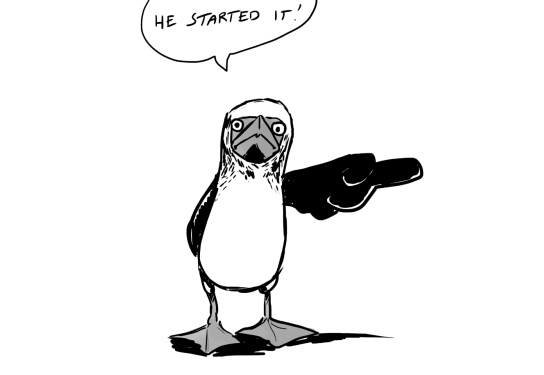Print Edition: July 3, 2013
Chances are you both love and hate your siblings (if you have them). But what kind of an effect does that relationship make on you?
Kelly Fitzgerald recently published an article titled “Sibling Bullying Associated With Anxiety, Depression In Victims.” This article suggests that bullying by siblings can be as bad if not worse than bullying by peers, especially long-term.
But is this really news to anyone?
While Fitzgerald makes some valid points about the impact of bullying from our siblings, I think there’s a bit more to this than meets the eye. To begin with, I think it’s really going to depend on the age of the siblings, as well as how far apart they are in age – are we talking five-year-olds, or 25-year-olds? Are they twins, nine months apart, or 10 years?
The form of bullying should also be taken into account; for example, although physical bullying may seem severe in the short term, emotional bullying may have longer-lasting effects.
That’s not to mention what role the parents take in this sibling conflict – if they are even aware.
A slightly older article by Oscar Sánchez-Macouzet and Hugh Drummond, “Sibling Bullying During Infancy Does Not Make Wimpy Adults,” examined this same issue, but with one small difference: the research took place in the context of an avian species – the blue-footed booby.
Aside from this bird’s amusing name, these fellas are pretty rough around the edges and put up with a lot of crap – especially from their siblings. Contrary to Fitzgerald’s findings, Sánchez-Macouset and Drummond found that regardless of a booby’s trained role in infancy—be it the winner or loser of a sibling pair—there was no difference in the booby’s aggressiveness in later years. That means that the bullied booby was equally as aggressive in defending its nest from predators as the non-bullied booby. In short: bullying made absolutely no difference one way or another.
But at the end of the day, those are still boobies. What about humans?
Everybody’s heard of sibling rivalry; it’s a common and largely expected phenomenon in our existence as humans. Anyone with siblings or who knows someone with siblings can certainly attest to this. It’s part of having a sibling – you fight. Anyone who claims they never fight with their brothers or sisters is a liar, a fake, and probably shouldn’t be your friend.
I grew up with an older brother; I know what it’s like. Throughout my upbringing, I’ve taken on such roles as the nerdy academic, the underdog animal lover, the punching bag, and the recipient of both kind and unkind verbal onslaughts. And you know what? It’s made me who I am today.
Not everyone deals with bullying the same way. This isn’t a clear-cut issue, but more of a continuum in terms of how we deal with bullying. If I was anyone other than myself, I would have internalized things differently and maybe then I would’ve been one of the anxious, depressed victims in Fitzgerald’s study.
I feel I can relate more with the boobies on this one. It might just be me, but I like to think there’s a little bit of booby in all of us.


